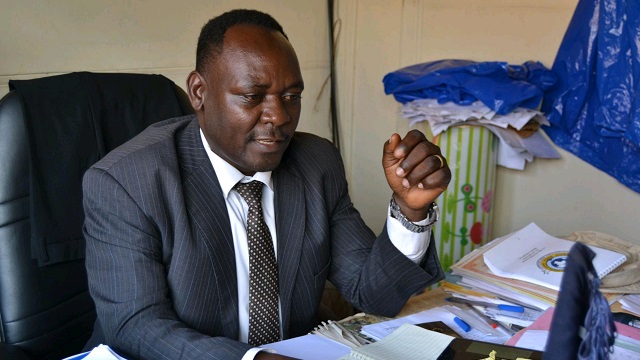
Kampala, Uganda | THE INDEPENDENT | The Uganda police cyber unit under the Criminal Investigations Directorate-CID has warned institutions and organisations against relying on outsiders to manage their electronic data management systems.
Assistant Superintendent of Police-ASP Charles Twine, the CID spokesperson cited an example of Kyambogo University, whose system was hacked into and data deleted, saying outsiders can hold you at ransom or tamper with the systems once a disagreement happens.
A week ago, unknown people infiltrated Kyambogo University electronic campus system and deleted data of over 2,900 students ahead of the forthcoming graduation. It started by taking the e-system offline for a full day before it was later restored by hackers with results and data of hundreds of students deleted.
In panic, Kyambogo University leadership led by Vice Chancellor Prof. Elly Katunguka, sought police intervention. The Vice Chancellor threw the blame to five former staff who declined to officially hand over the University systems and software as they quit the University.
ASP Twine said during their investigations, it was established that there has been a fight between Kyambogo University management and inventers and managers of the e-campus system. The CID Cyber Unit has already restored more than 98 percent of the lost data.
“There was a conflict of ownership. Inventors and Kyambogo claim ownership. The University says it was funded by them using their physical infrastructures. Because of the conflict, the inventors said let us do this and see whether you will have control over it. We however want to request institutions to manage their own systems,” said ASP Twine.
In order to avoid re-occurrence of incidents similar to that of Kyambogo University, ASP Twine urges companies to always use people employed by them to develop or manage systems. In addition, police urge institutions to always have people checking their systems.
Paul Senoga, an IT expert and founder of GPS car tracking, says there are several ways hackers access systems purposely to cause anarchy. This according to Senoga is done through tracing for weaknesses.
“Hackers keep attempting until they gain access to the system. The easiest way to hack into a system is through using wireless internet to intercept communication. We have what we call a malware. It is a small program which in most cases is directed to install itself on a computer. A malware opens up pots. An example is like when you have your house and you decide to pour water from all direction to test whether it can enter,” explained Senoga.
Senoga explains that once access is gained, hackers can transfer all the money, they can put information to public domain to purposely demean or shame you. Malware are installed by tricking people with messages of gifts, prizes to win or interesting programs to watch and through that people log in their details.
*****
URN
The post CID warns institutions on hiring outsiders to manage electronic systems appeared first on The Independent Uganda:.
from The Independent Uganda: https://ift.tt/3tcFzD9
0 Comments